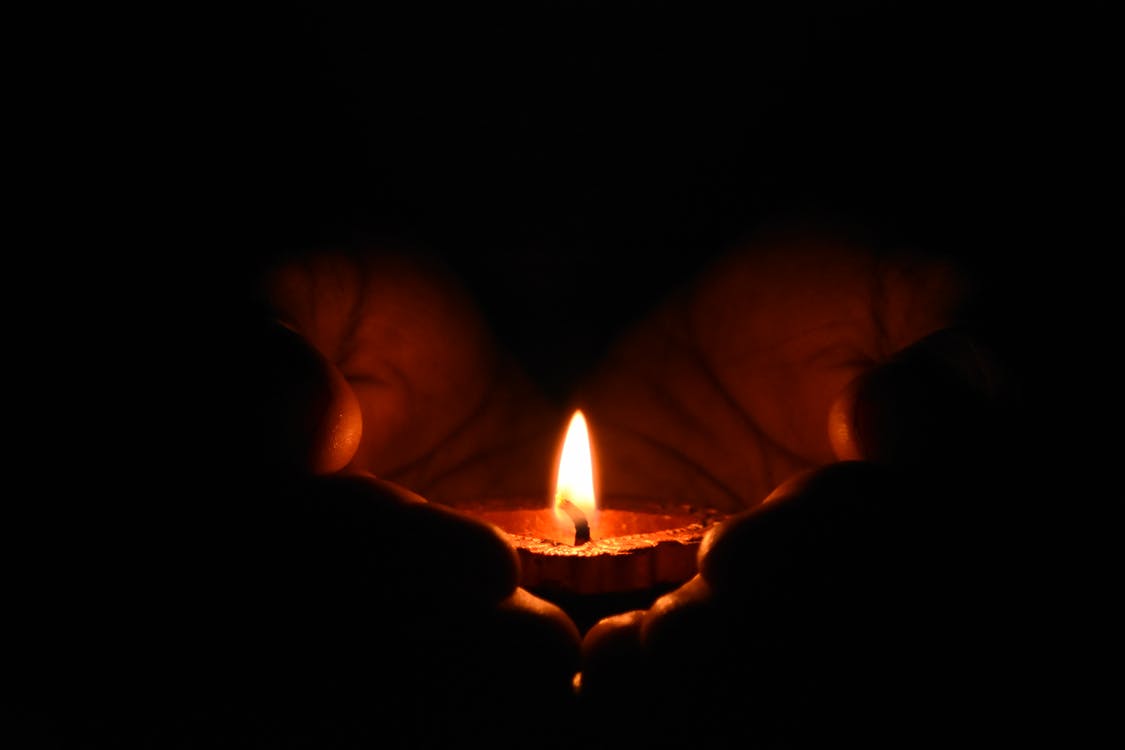The loss of a loved one always hits home hard. Whether it’s an unexpected accident or an ongoing illness, saying goodbye can leave you with a broken heart, pangs of nostalgia and an all-encompassing sense of loneliness. While there’s nothing you can do to change the situation, you can control how you choose to cope with grief. And ultimately, it can have an enormous impact on your emotional and physical health.
Need a little inspiration? Read on for a look at some of the best ways to cope with grief. And no, there’s not an antidepressant in sight.

Open up to others
After a personal loss it can be all too easy to retreat into yourself. Often people try to manage grief by refusing to admit how much pain and loss they’re experiencing. Furthermore, attempting to ignore or downplay the loss can seem easier than facing grief head on. But it’s important not to shut yourself or your emotions away, as reaching out to others can often provide a positive perspective and an all-important support network.
Steer away from drugs and alcohol
From alcohol to prescription drugs, mind altering substances are often a saviour for people suffering from grief and loss. While there’s nothing wrong with a glass of wine to lift your spirits, overindulging in an effort to “get away from it all” can lead to bad habits and slow down the journey to recovery.
Experiment with herbal remedies
While anti-depressants and anti-anxiety medication can come with a bit of a stigma, there are also some amazing herbal remedies out there. Chamomile tea can work wonders for calming the mind, while valerian root is known for its anti-insomnia properties. Passion flower soothes anxiety and lavender is a known for its relaxing aroma. So whether you get into essential oils, herbal tinctures or aromatherapy, why not give Mother Nature a chance to work her magic?
Find your Zen with meditation
Grief can often force you to look inwards, but it’s not always in a positive or productive context. Cue meditation. While the practice can seem isolating, it’s actually about freeing your mind, soothing your soul and rising above the flood of grief to find your inner sense of self.
Get creative
Loss tends to go hand in hand with emotional outbursts, from fiery anger to an all-consuming sense of sadness. Finding a creative medium to help you ride the emotional rollercoaster can help to release your emotions and express yourself in a way that’s positive and productive.
Hit the road
While travelling immediately after a loss is understandably daunting, after a certain amount of time has elapsed it can be a powerful way to reset your psyche. When you find yourself flirting with the recovery stage, travel can help people to regain control and rekindle their sense of childlike wonder.
Make plans
Even if life without a loved one seems impossibly bleak, don’t overlook the importance of making plans. One of the best ways to move past a heartbreaking loss in the past is to make sure you have things to look forward to in the future. Don’t forget, your loved one would unconditionally want you to live life to the fullest, so don’t feel guilty by treating yourself to whatever it is that gets you inspired.
Honour their legacy
Beyond funerals and obituaries, honouring the person you lost can play an important role in helping you to move on. Experts call the concept “grief rituals” and assert that the strategy has positive outcomes for mourners. Ultimately, they serve as a connection to your loved one, and can help you move on without feeling like you’re forgetting them.
Sweat it out
There’s no arguing with the fact that exercise releases natural endorphins, which ultimately act as mood boosters. And no matter how grief struck you are, the laws of chemistry mean that your body can’t fail to react to a healthy dose of serotonin. So, whether it’s swimming laps, going for a run or heading to the gym, working up a sweat is one of the easiest and most effective ways to inch towards recovery.
It’s important to remember that grief manifests in different ways. Everyone is unique, which means that what works for one person may not work for another. So, keep your chin up, stay open minded and continue experimenting with grief management strategies until you find that little spark that will start to bring light back into your life. And most importantly, if you’re really struggling don’t be scared to reach out for help. There’s no shame in confiding in a friend, joining a support group or even seeking counselling.









Join the Discussion
Type out your comment here:
You must be logged in to post a comment.